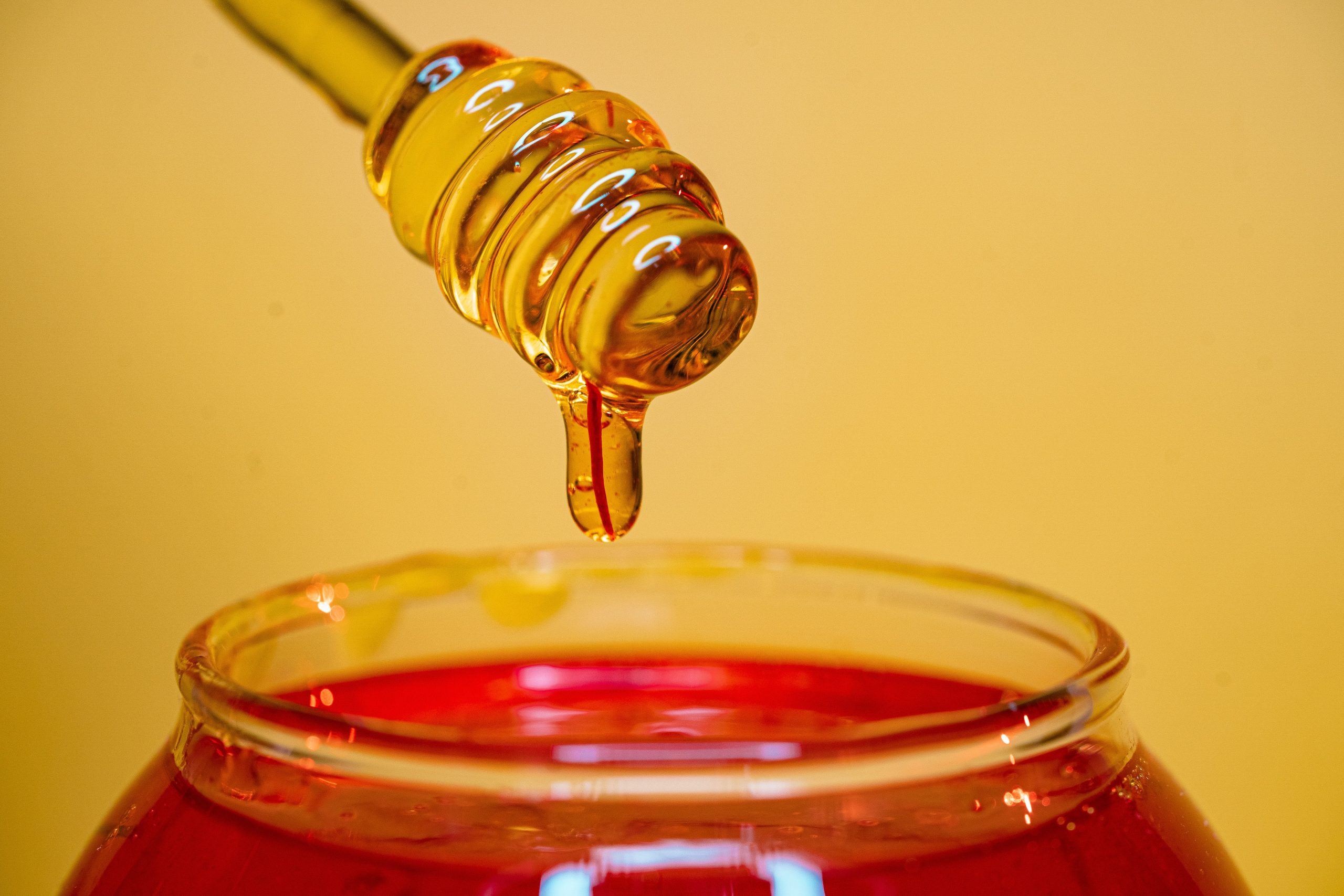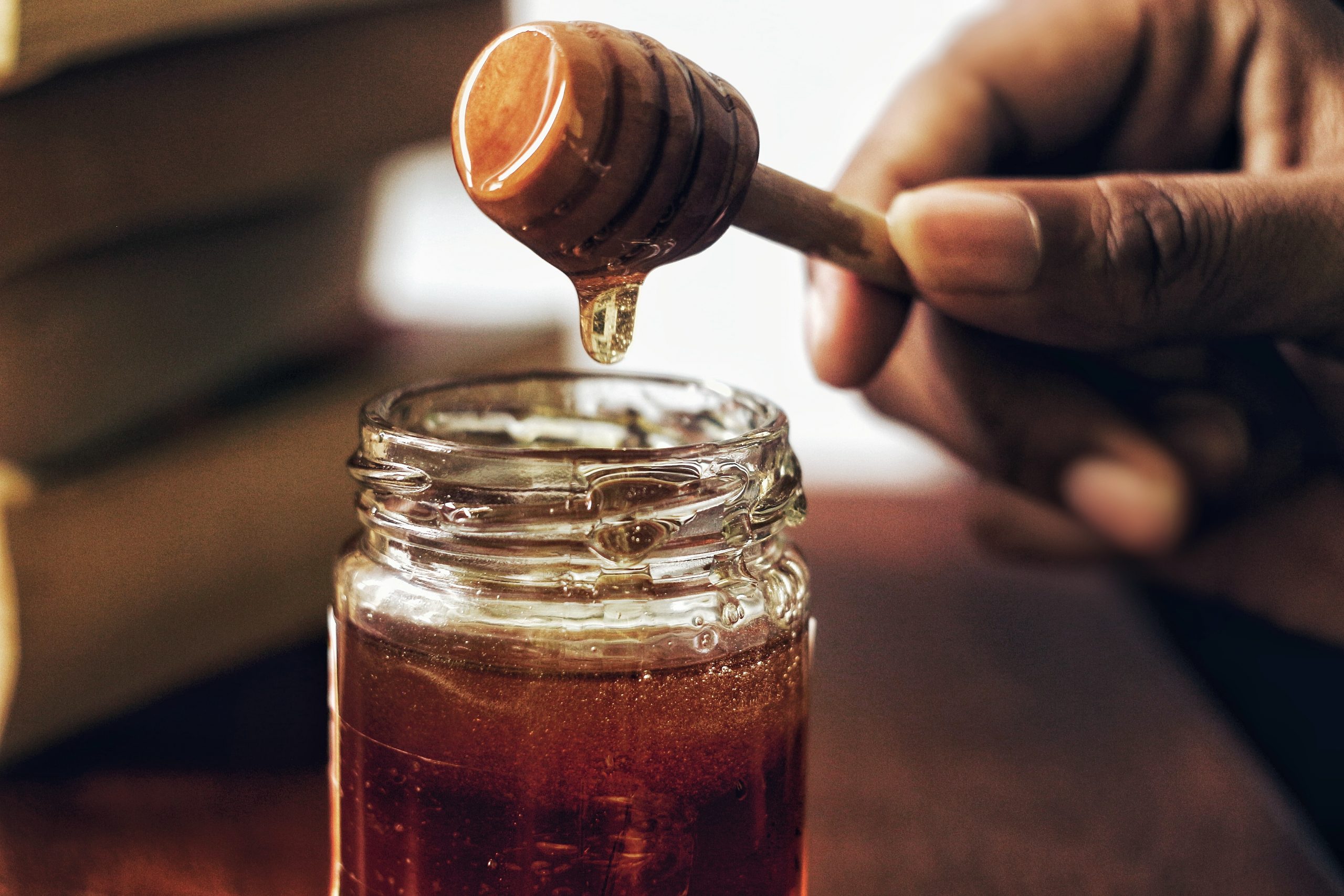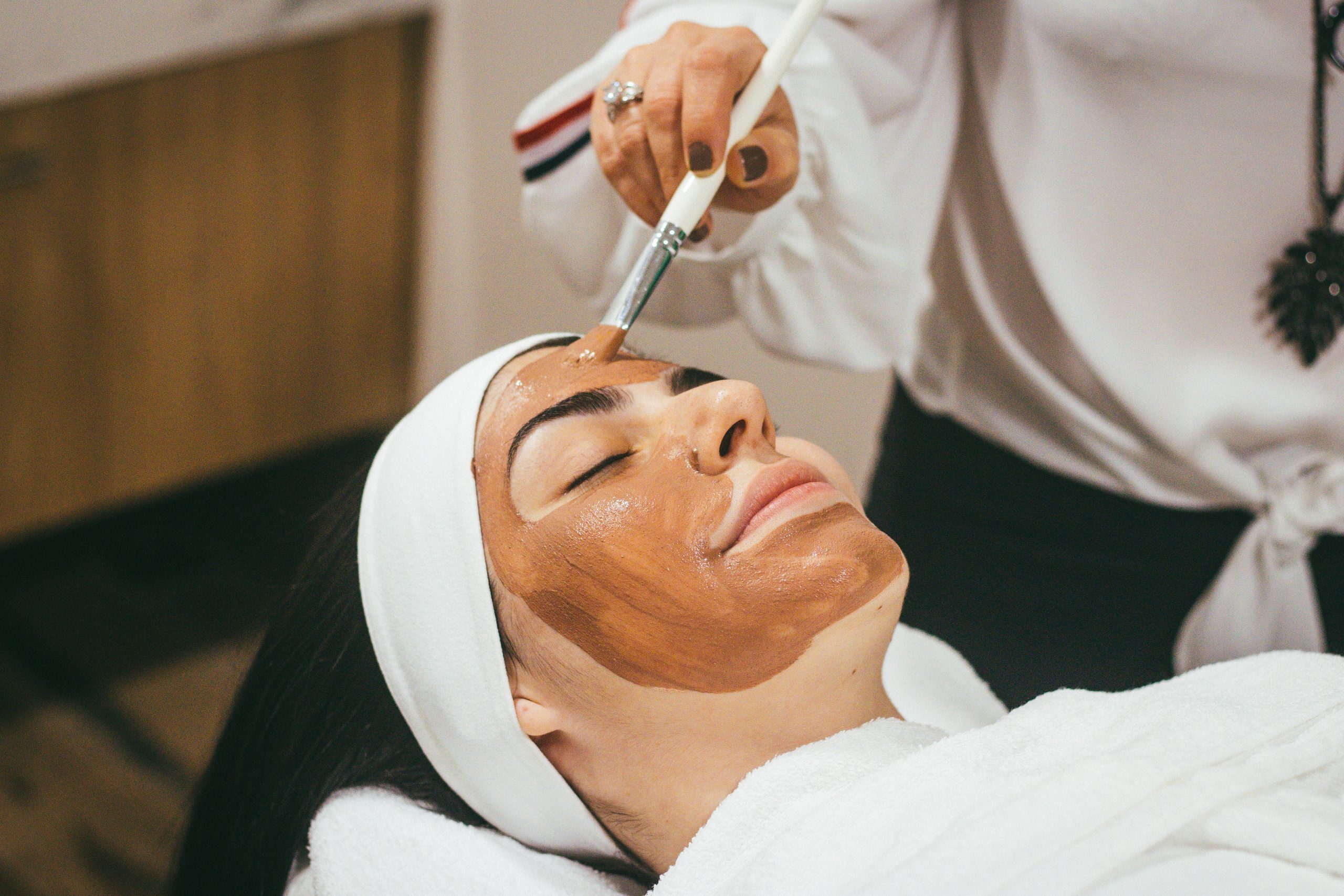
Nội dung bài viết / Table of Contents
Honey has been considered as a folk remedy for thousands of years due to its diversity of medical uses and health benefits. It has so many benefits to our health that people often regard it as “liquid gold” or “food of the gods.” Thanks to its versatility, you can eat them raw, processed, or incorporated into other foods as a sweetener. Furthermore, honey has a wide range of varieties that can cater to everyone’s taste and textural preferences. Some of the most popular ones are: manuka honey, clover honey, and multi-flower honey. Read on to learn more about the health benefits of honey!

Credit: Benyamin Bohlouli on Unsplash
Honey is rich in antioxidants like flavonoids and polyphenols. Antioxidants are very good for our health since they are able to fight off inflammation. This property makes honey believed to be able to help us fight off diseases caused by oxidative stress & chronic inflammation, and is currently studied for cancer prevention.
Even though over-the-counter medicines are much more effective than honey for cough relief, it is still a great alternative when you are in an emergency. Honey might also be easier to give to smaller children who do not like the taste of cough syrup.
According to Charlotte Smith, MD, physician at Penn Urgent Care South Philadelphia, “honey is one of the best remedies for a sore throat due to its natural antibacterial properties that allows it to act as a wound healer, immediately offering relief for pain while working to reduce inflammation. Honey can also kill bacteria and help fight off viral infections.”
You can take honey directly as it is, or dilute two tablespoons into a glass of warm water to make it easier to drink. There are also herbals like lemon, lime, ginger or mint you can add to your glass as a booster, or simply to enhance the taste.

Credit: Arwin Neil Baichoo on Unsplash
Many of us might have heard about the belief that honey does not expire. It does not get moldy due to its antibacterial and antifungal properties that discourage bacterial growth. Moreover, honey’s high viscosity makes it a less than ideal base for microorganisms to live in or reproduce. As a result of these properties, honey is believed to be a powerful aid to fight infections.
Many studies suggest that honey is effective as a wound healer. On the contrary, there are experts who believe that honey does not bring any substantial benefits for scars or burns whatsoever. Some researchers have also warned against rubbing honey on open scars, especially for people with diabetes due to safety risks.
Regardless of the fact that it still remains debated in the scientific community, honey has been topically used by indigenous people of Ancient Egypt, Greece, and Rome for wound healing. The sticky consistency of honey keeps the wound moisturized and acts as a protective antimicrobial barrier against infection.

Credit: Raphael Lovaski on Unsplash
Honey is becoming an increasingly popular ingredient in skincare formulations. It has humectant properties which are able to make skin hydrated and soothed. Even though each product has its own properties which differ from one brand to another, skincare that includes honey is usually marketed for people with sensitive skin due to its “skin barrier protecting” properties.
Additionally, propolis that are harvested from bee farms are also included in many skincare products. Due to their high antioxidant content, it is believed to have the ability to help with hyperpigmentation issues —though is known to be less potent than the popular vitamin C serums. If you suffer from dark spots or would love to see a mild improvement in your complexion brightness, but have sensitive skin that does not tolerate vitamin C serums well; then honey & propolis based skincare products can be good to consider.
Don’t feed honey or products containing honey to children under 12 months, due to the known risk of infant botulism. Even though honey has antibacterial properties, there’s a potential for some Clostridium botulinum spores that could survive and then get ingested by time of consumption. This isn’t much of a concern for adults and toddlers older than 1 year old, but babies’ digestive tracts are very vulnerable to this bacteria.
Many people are also uninformed about the sugar content of honey, or overuse it without considering any adverse consequences just because they think it’s natural sweetness. In fact, honey is composed of 80% sugar. While not all sugars are the same (e.g. honey vs. white sugar) and honey contains healthy antioxidants, eating too much of sugar in general is never a wise thing to do. If you like to take honey every day, the recommended amount is two tablespoons.

Credit: Kunal Kalra on Unsplash
Honey allergies are very rare, but possible (approximately <0.001% of the population). Traces of bee pollen and nectar that are accidentally left on honey during the harvesting process can make some people have severe anaphylaxis reactions. If you experience coughing, swelling, rash, or any adverse reactions after consuming honey, stop consumption immediately and seek medical treatment.
Aguiar, R., Duarte, F. C., Mendes, A., Bartolomé, B., & Barbosa, M. P. (2017, January). Anaphylaxis caused by honey: a case report. Asia Pacific allergy. https://www.ncbi.nlm.nih.gov/pmc/articles/PMC5287071/.
Bucekova, M., Sojka, M., Valachova, I., Martinotti, S., Ranzato, E., Szep, Z., Majtan, V., Klaudiny, J., & Majtan, J. (2017, August 4). Bee-derived antibacterial peptide, defensin-1, promotes wound re-epithelialisation in vitro and in vivo. Scientific reports. https://www.ncbi.nlm.nih.gov/pmc/articles/PMC5544694/.
Centers for Disease Control and Prevention. (2021, June 1). Botulism Prevention. Centers for Disease Control and Prevention. https://www.cdc.gov/botulism/prevention.html.
Cronan, K. M. (Ed.). (2020, February). Infant Botulism (for Parents) – Nemours KidsHealth. KidsHealth. https://kidshealth.org/en/parents/botulism.html.
FDA. (2017, October 31). BAM Chapter 17: Clostridium botulinum. U.S. Food and Drug Administration. https://www.fda.gov/food/laboratory-methods-food/bam-chapter-17-clostridium-botulinum.
Isensee, N.-K. (2016, May 22). All About Honey: Types and Healing Properties. Foodal. https://foodal.com/knowledge/paleo/honey-types-and-healing-properties/.
Kahn, A. (2018, August 17). Anaphylaxis: Causes, Symptoms & Diagnosis. Healthline. https://www.healthline.com/health/anaphylaxis.
Mandal, M. D., & Mandal, S. (2011, April). Honey: its medicinal property and antibacterial activity. Asian Pacific journal of tropical biomedicine. https://www.ncbi.nlm.nih.gov/pmc/articles/PMC3609166/.
MediLexicon International. (2019). Honey: Benefits, uses, and properties. Medical News Today. https://www.medicalnewstoday.com/articles/264667#medicinal-uses.
Minden-Birkenmaier, B. A., & Bowlin, G. L. (2018, June 14). Honey-Based Templates in Wound Healing and Tissue Engineering. Bioengineering (Basel, Switzerland). https://www.ncbi.nlm.nih.gov/pmc/articles/PMC6027142/.
Othman, N. H. (2012). Honey and cancer: sustainable inverse relationship particularly for developing nations-a review. Evidence-based complementary and alternative medicine : eCAM. https://www.ncbi.nlm.nih.gov/pmc/articles/PMC3385631/.
Pasupuleti, V. R., Sammugam, L., Ramesh, N., & Gan, S. H. (2017, July 26). Honey, Propolis, and Royal Jelly: A Comprehensive Review of Their Biological Actions and Health Benefits. Oxidative medicine and cellular longevity. https://www.ncbi.nlm.nih.gov/pmc/articles/PMC5549483/.
Schramm, D. D., Karim, M., Schrader, H. R., Holt, R. R., Cardetti, M., & Keen, C. L. (2003, March 12). Honey with high levels of antioxidants can provide protection to healthy human subjects. Journal of agricultural and food chemistry. https://pubmed.ncbi.nlm.nih.gov/12617614/.
Smith, C. (2020, January 23). 6 At-Home Remedies to Ease Your Sore Throat. Penn Medicine. https://www.pennmedicine.org/updates/blogs/health-and-wellness/2018/february/sore-throat.
Stanborough, R. J. (2020, September 16). What to know about your skin barrier and how to protect it. Healthline https://www.healthline.com/health/skin-barrier#_noHeaderPrefixedContent